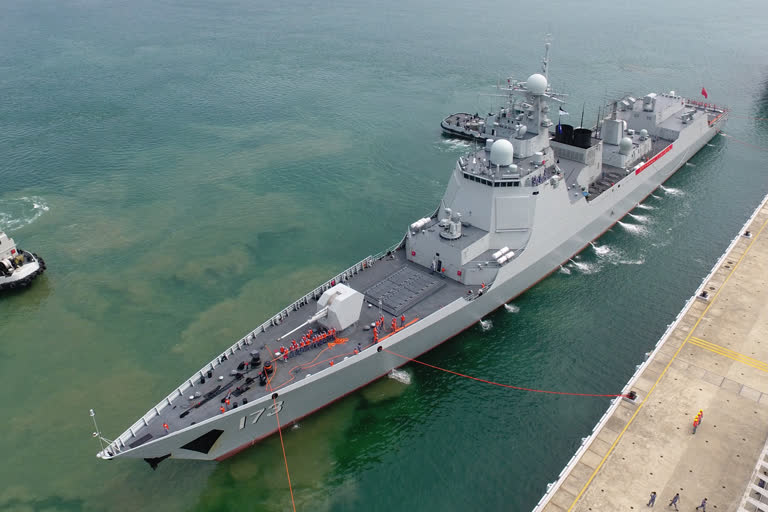New Delhi: Rattled by the strengthened US naval presence in the region, China has gone in for a fresh round of gunboat diplomacy with the Association of South-East Asian Nations (ASEAN) countries as it sees these nations looking at Washington for support to keep the dragon at bay.
The recent meeting in Tokyo of foreign ministers of the Indo-Pacific quad countries comprising the US, India, Japan and Australia also seems to have been factored into China's stepped up the diplomatic drive with Foreign Minister Wang Yi undertaking a whirlwind tour to the ASEAN neighbours.
The ASEAN grouping includes countries such as Indonesia, Malaysia, the Philippines, Singapore, and Thailand while some partner countries like Vietnam also have close ties with the group.
China has been continuously bullying these countries by staking ownership claims over its outlying islands and sending warships into their Exclusive Economic Zones (EEZ) to intimidate them.
However, in the context of the changed geopolitical situation, Wang went on a hectic "goodwill visit" to the ASEAN region this week. While assuring them of support for a vaccine to fight the deadly Covid-19 outbreak and closer economic co-operation, China's gunboat diplomacy also makes it clear that these countries must keep clear of the US.
Beijing and members of ASEAN should work together to remove "external disruption" in the South China Sea, Wang said during a joint news conference with Malaysia's Foreign Minister in Kuala Lumpur.
Wang claimed America's Indo-Pacific strategy was a "security risk" for East Asia, saying: "I believe all parties see this clearly and will stay vigilant against it. The South China Sea should not be a ground for major power wrestling teeming with warships."
"China and ASEAN have full capacity and wisdom, as well as responsibility, to maintain peace and tranquillity in the South China Sea," Wang added.
As an economic sop to Malaysia, China committed to purchasing 1.7 million tonnes of palm oil until 2023 and agreed to encourage increased shipments of the product which is crucial for the development of the ASEAN member's economy.
Read more:US, Australia, India, Japan discuss China's growing power
The joint statement issued after the meeting also mentions that the two countries agreed to "further advance mutually beneficial cooperation under the ambit of the Belt and Road Initiative."
